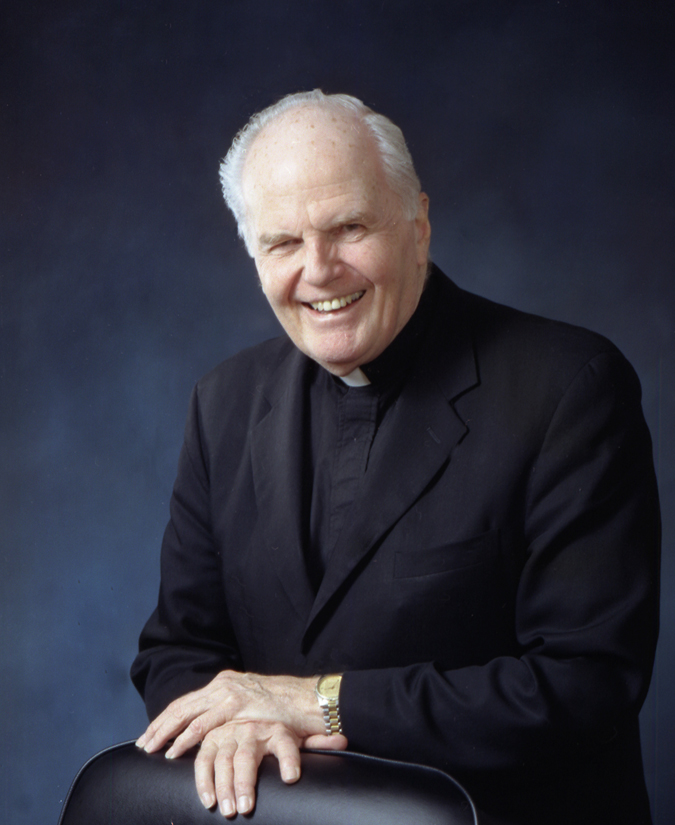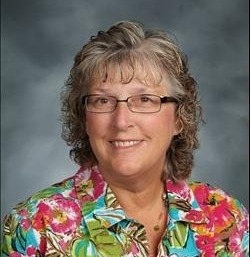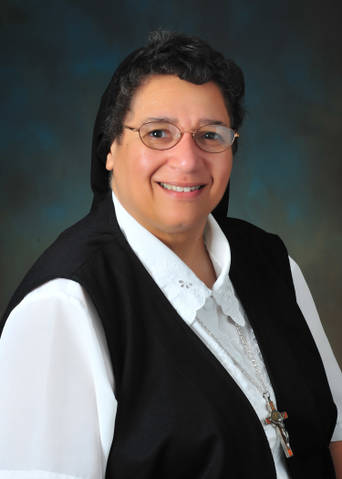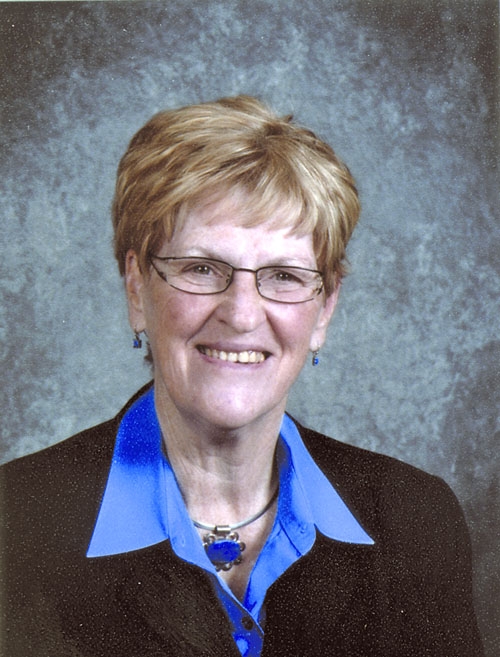Champions of Change Blog
Promoting Comtemporary Jesuit Education Locally, Internationally and Globally
Posted by on January 25, 2012 at 2:30 PM EDT Jesuits are committed to two ideals that make for a heady agenda on college and university campuses: seeking God in all things and pursuing the magis, the greater and more effective good in whatever they do. The contemporary Jesuit campus is busy with living those ideals with a freedom to pursue to new ideas, work on new frontiers, and to be continually restless to be more effective and generous in pursing important issues and projects. Add to that a current emphasis on realizing a global perspective in and out of the classroom.
Jesuits are committed to two ideals that make for a heady agenda on college and university campuses: seeking God in all things and pursuing the magis, the greater and more effective good in whatever they do. The contemporary Jesuit campus is busy with living those ideals with a freedom to pursue to new ideas, work on new frontiers, and to be continually restless to be more effective and generous in pursing important issues and projects. Add to that a current emphasis on realizing a global perspective in and out of the classroom.It has been my privilege for the past 14 years to lead the Association of Jesuit Colleges and Universities (AJCU), which serves the 28 Jesuit schools by representing them, supporting them in every way possible and promoting national and international collaborative efforts that make these institutions at once local, national and global. My role has led me to interact with the talented women and men on our very dynamic campuses by following, encouraging, and facilitating their good work.
My role has taken me to: El Salvador with our students engaged in a transformative immersion experience on a campus where Jesuits and their co-workers were killed over 20 years ago (one of many immersion experiences developed by our schools); to a refugee camp in Kenya, where our faculty are now offering on-line courses to refugees; to Latin America to work with our sister Jesuit universities there; and to China where U.S. Jesuit universities have collaborated to offer both an international MBA and an undergraduate immersion experience.
The Cristo Rey Network: Graduating Scholars and Granting Dreams
Posted by on January 25, 2012 at 2:30 PM EDT Millions have been educated in parochial schools through the 1960s and these graduates have grown up to make vital contributions to American productivity and culture. Since then thousands of Catholic schools have closed, particularity in inner-cities. The remaining traditional Catholic schools often charge a high tuition that low-income families cannot afford; meanwhile, students most in need of a good education today are being failed by the public education system. An African American male in America today is more likely to land in prison than in college; a young Latina enrolled as a freshman in college has about a one in 10 chance of earning a degree.
Millions have been educated in parochial schools through the 1960s and these graduates have grown up to make vital contributions to American productivity and culture. Since then thousands of Catholic schools have closed, particularity in inner-cities. The remaining traditional Catholic schools often charge a high tuition that low-income families cannot afford; meanwhile, students most in need of a good education today are being failed by the public education system. An African American male in America today is more likely to land in prison than in college; a young Latina enrolled as a freshman in college has about a one in 10 chance of earning a degree.The Cristo Rey Network has taken up the challenge to exclusively serve young people who come from families with economic need and do not have access to a quality education. With 24 Catholic, college preparatory high schools across the country, Cristo Rey has been cited by Time Magazine as “an island of success in the Catholic ocean.” Each of the 6,900 students enrolled this year will graduate high school with the knowledge and 21st century skills to be successful in college and the workplace. Our schools implement a rigorous, college preparatory curriculum and every student participates in the Corporate Work Study Program. This program employs all students in a professional job one day a week to earn up to 70% of their tuition as well as gain hands-on work experience.
Making Catholic School: A 'Second Home for Students'
Posted by on January 25, 2012 at 2:30 PM EDT I believe that every child is unique and should be treasured. We have a diverse population at St. James the Less, and I work with our staff to develop the potential and the promise that each student possesses. Our children come from Vietnam, Cambodia, China, Russia, Kenya, Nigeria, Ghana, Mexico, El Salvador, Puerto Rico and all parts of the United States. We have children of all faiths, income levels, academic levels, and family structures. I believe that we are a window to the world and this gift of diversity allows us to relate to everyone as brothers and sisters in Christ.
I believe that every child is unique and should be treasured. We have a diverse population at St. James the Less, and I work with our staff to develop the potential and the promise that each student possesses. Our children come from Vietnam, Cambodia, China, Russia, Kenya, Nigeria, Ghana, Mexico, El Salvador, Puerto Rico and all parts of the United States. We have children of all faiths, income levels, academic levels, and family structures. I believe that we are a window to the world and this gift of diversity allows us to relate to everyone as brothers and sisters in Christ. I believe Catholic schools should be a second home to their students. At St. James, I have worked with our staff to create that family atmosphere. One eighth grader told me; “It may sound weird to hear an eighth grader say they love to come to school. But I do because here, there is no chaos. I know that the teachers and you will be here every day. I will have class, get lunch and someone will help me with whatever I need.” Our faith calls us to open our arms and our hearts to the children under our care.
I have come to realize that this concept of home must extend to the wider parish community. Eight years ago, our pastor, at that time, began with one Spanish Mass and an attendance of 50. This has grown to two Masses and attendance of over 500. At that same time, we made a conscious decision to dedicate ourselves to find ways to incorporate Latinos students into St. James the Less Catholic School. As the parish grew, we also grew from two Latino students to 250 this school year. As a staff, we prepared for this by taking Spanish language and culture classes. We have added two English as a Second Language(ESL) teachers, as well as provided staff development on best practices for teaching ESL students. We revised our forms and all types of communication to be bilingual. We hired three bilingual staff members. Spanish language began to be taught to all students. Spanish was taught to English speakers to broaden their knowledge and Spanish for our Spanish speakers to help them retain their culture. Our efforts became the bridge for the integration of our new students into the St. James the Less Catholic family.
Start Over? Rebuild? Yes We Did
Posted by on January 25, 2012 at 2:30 PM EDT I have always loved God and trusted that “I can do all things through Christ who strengthens me”. On August 28, 2005, my faith in God, my strength, and my desire to face reality were challenged by Hurricane Katrina. After looking at the news the day before, and realizing we may be asked to evacuate again, I thought of our 35 new computers that had just been set up and spent the morning making sure they were well covered with plastic. Everything else seemed to be in place and protected. We had several thousands of dollars of new text books but they were well protected in the bottom lockers, on the first floor of the main building. After a final walk though, I went home to pack one or two sets of clothes and prepared to get up early the next morning to leave New Orleans for one or two days until the weather cleared up.
I have always loved God and trusted that “I can do all things through Christ who strengthens me”. On August 28, 2005, my faith in God, my strength, and my desire to face reality were challenged by Hurricane Katrina. After looking at the news the day before, and realizing we may be asked to evacuate again, I thought of our 35 new computers that had just been set up and spent the morning making sure they were well covered with plastic. Everything else seemed to be in place and protected. We had several thousands of dollars of new text books but they were well protected in the bottom lockers, on the first floor of the main building. After a final walk though, I went home to pack one or two sets of clothes and prepared to get up early the next morning to leave New Orleans for one or two days until the weather cleared up.Within the next two weeks, we to visited our beloved St. Mary’s Academy (SMA), a private, Catholic all girls’ college preparatory school founded (1867) and administered by the Sisters of the Holy Family. Upon arriving, the city had an awful smell, and gave me an eerie feeling. There were no cars, no people, and no sounds. The biggest shocker of all was when I exited to Chef Menteur Highway, where our Motherhouse and St. Mary’s Academy had taken on seven feet of water. Everything was brown giving the impression that a bomb had been dropped. At that time the city was talking about making our area green space. They felt it was too risky to rebuild. Too risky? – What would become of our girls?
Collaboration in Catholic Education
Posted by on January 25, 2012 at 2:30 PM EDT Through the years, I have watched the role of the leader in a Catholic school evolve. In the beginning, leaders were managers, who made decisions and told others what to do, how to do it, and when to do it.
Through the years, I have watched the role of the leader in a Catholic school evolve. In the beginning, leaders were managers, who made decisions and told others what to do, how to do it, and when to do it.Today, thankfully, leadership is about collaborating and working toward a common goal. In my 50 years of working in Catholic education, I have learned that when leaders bring people together and ask them to assist in reaching a goal that they are happy to share their own wealth of knowledge and skills. The diversity of the group strengthens the process and leads to better decisions.
In the end the winners of this collaborative process are the children we serve. Good leadership and good decisions bring about the change needed to make our students successful inside and outside of the classroom. Over the years I’ve seen Catholic education free children from the limitations of every type of poverty -- material or spiritual. In addition to helping children succeed academically, we teach them that it is Christ who gives meaning to their lives. From that simple truth students learn to respect the dignity of every single person. We can’t make real progress as a society or have justice without this.
Overcoming Economic Defecits to Provide Educational Opportunities
Posted by on January 25, 2012 at 2:30 PM EDT
I have always embraced the challenge to effect change in the lives of the young people whose parents make the choice and sacrifice to send them to Catholic school. The privilege of educating the young men at All Hallows is extremely rewarding. Is there anything more satisfying than having a senior on his way to college with a full academic scholarship thank you for providing him with the means (education) to no longer be a part of a nightmare but have the opportunity to live the American dream?
My role as president of All Hallows High School, a Catholic high school in the poorest Congressional District (16th) in the United States, gives new meaning to multi-tasking. Our enrollment has been steadily rising over the past 10 years – up 42% to 660! Tuition is a relatively low $5700 but 78% of our families need assistance. Within the context of our spiritual base as a Catholic school sponsored by the Congregation of Christian Brothers, we offer an education that is a proven success. Graduation rate and college acceptance varies from 98% - 100%.
When All Hallows was founded in 1909 the motto, Pro Fide et Patria, was selected. It is a privilege to see these dual and complementary purposes carried out every day. Poverty is an obstacle for many of our students and their families but it is never accepted as an excuse for failure at All Hallows. As a Catholic school we are fortunate to be able to work within a context that recognizes the spiritual dimension of each person. With a personal greeting and handshake each morning and afternoon, each student knows that he is valued at All Hallows. He also knows that we will take every reasonable measure to make certain that he is physically and emotionally prepared for school.
- &lsaquo previous
- …
- 137
- 138
- 139
- 140
- 141
- 142
- 143
- 144
- 145
- …
- next &rsaquo
White House Blogs
- The White House Blog
- Middle Class Task Force
- Council of Economic Advisers
- Council on Environmental Quality
- Council on Women and Girls
- Office of Intergovernmental Affairs
- Office of Management and Budget
- Office of Public Engagement
- Office of Science & Tech Policy
- Office of Urban Affairs
- Open Government
- Faith and Neighborhood Partnerships
- Social Innovation and Civic Participation
- US Trade Representative
- Office National Drug Control Policy
categories
- AIDS Policy
- Alaska
- Blueprint for an America Built to Last
- Budget
- Civil Rights
- Defense
- Disabilities
- Economy
- Education
- Energy and Environment
- Equal Pay
- Ethics
- Faith Based
- Fiscal Responsibility
- Foreign Policy
- Grab Bag
- Health Care
- Homeland Security
- Immigration
- Innovation Fellows
- Inside the White House
- Middle Class Security
- Open Government
- Poverty
- Rural
- Seniors and Social Security
- Service
- Social Innovation
- State of the Union
- Taxes
- Technology
- Urban Policy
- Veterans
- Violence Prevention
- White House Internships
- Women
- Working Families
- Additional Issues

